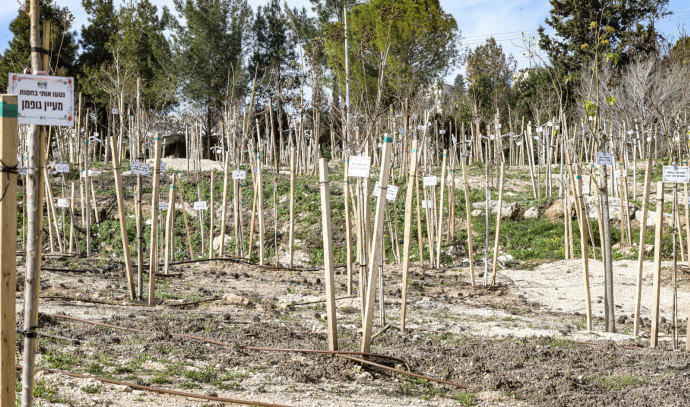The National Fund for Israel and the Honey Council announced a special planting operation on the occasion of Tu in the tribe of approximately 45,000 cypher trees, most of them in close proximity to agricultural areas in the north and south, which were damaged in the war.
The planting operation is designed to introduce the honey bee, an endangered invention. The Honey Council warned that the phenomenon of the goat and the bees is expanding year by year in the world and creates fear for the future of food production from plants. This is because the honey bee is the main pollinator in nature, responsible for pollinating about 80% of the world’s agricultural crops.
The main reason being investigated for the phenomenon of the disappearance of bees is a lack of food for bees – flower nectar, which results, among other things, from the climate crisis and extreme events that affect the blossoms, along with urbanization trends and the reduction of agricultural areas.
As part of the unique planting project, KKL-Junk grows tens of thousands of saplings of trees and cypress bushes every year for the beekeepers, which are planted across the country in cooperation with the beekeepers (beekeepers) in the north and south.
According to Hagai Yablovitz, director of the seeds section at KKL-Junk, the process of distributing the seedlings is done in full cooperation with the Honey Council and the beekeepers, and in recent years a process of precision and optimization of the process has been carried out, with the aim of helping the beekeepers and the honey industry while at the same time receiving all the system services provided by the trees, such as fixation Carbon, creating oxygen, keeping the soil from drifting and encroaching on the habitat of the beech, and more.”
The Director General of the Honey Council, Ofir Reich, noted that this year it is more important than ever due to the need to preserve the agricultural sector and food production for the residents of Israel, and to re-bloom the agricultural areas in the north and south.
In the meantime, KKL-Junk announced that after the destruction of settlements and agricultural areas due to the war in the south and the north, about 400 thousand plantings will be made on the occasion of Tu Bashvet at KKL-Junk sites in various regions.
KKL-Junk invited families and organized groups to take part in the various events in the areas. This year, the planting events during the fighting, which symbolize the renewal of the State of Israel, are of utmost importance.
The national safety manager at KKL-Junk, Uri Shmueli said that the planting areas were inspected by the workers entrusted with this, who removed the obstacles and hazards. He noted that the planting pits were prepared accordingly and the planters should pay attention to the planters who are with them in the field.
According to him, at the end of the planting, it is recommended to clean your hands before eating and drinking and you must listen to the voice of the guides, who will give safety instructions to the planters. “We are happy to promote the Tu Beshevat events that symbolize the renewed growth of the State of Israel out of the crisis and hardship,” he noted.
